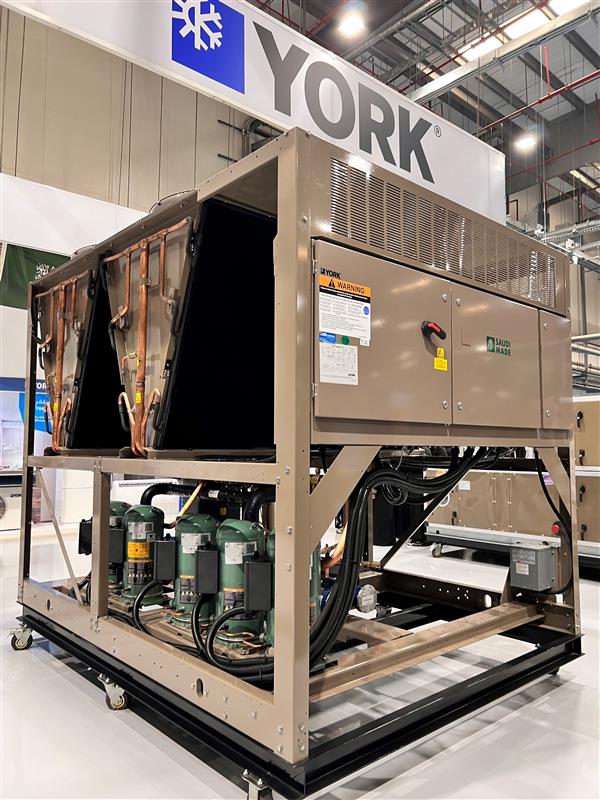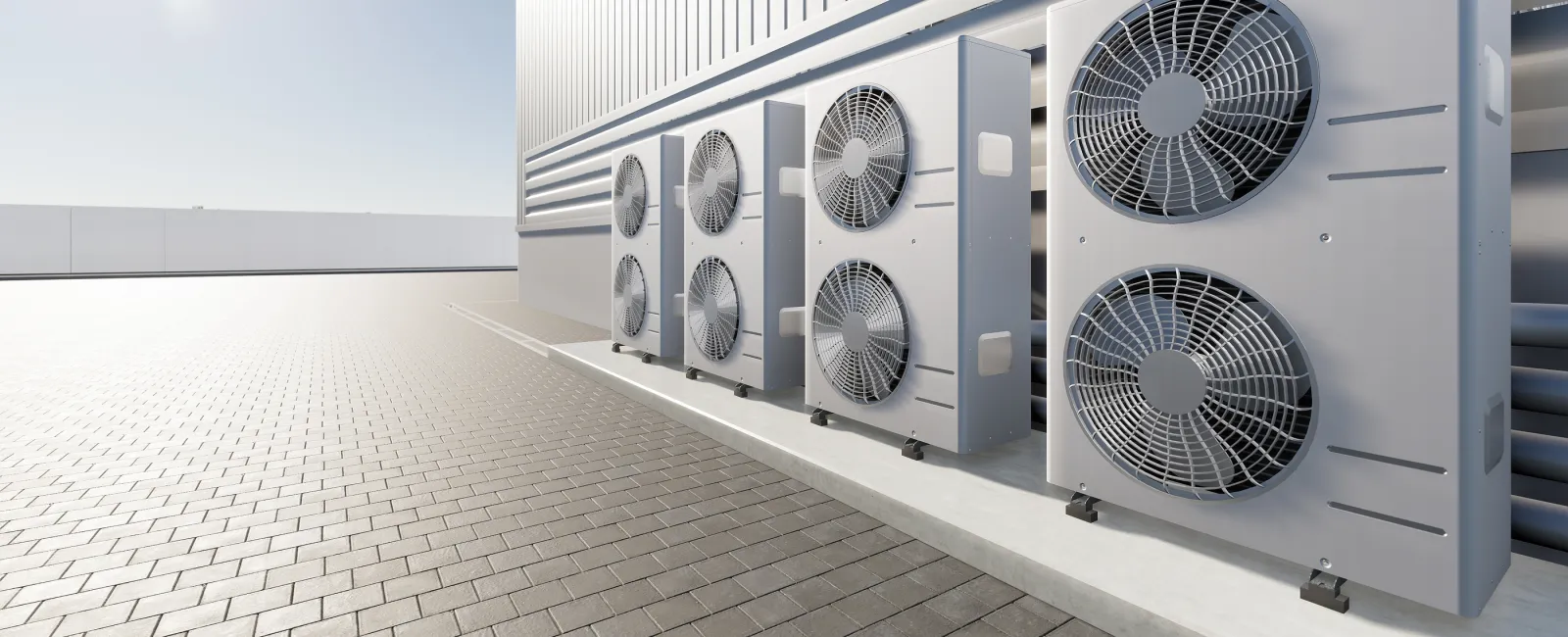Discover how HVAC experts deliver installation services with precision
Wiki Article
Checking Out the Necessary Parts of an Effective HVAC System
An effective HVAC system is improved numerous critical components that work in consistency. Each part, from the thermostat to the ductwork, plays an essential function in keeping convenience and energy efficiency. Comprehending these aspects is essential for optimizing efficiency and improving indoor air quality. As one analyzes these elements, the intricate partnerships in between them reveal insights right into improving overall system efficiency. What details aspects add most to this effectiveness?The Function of the Thermostat in A/c Performance

Often ignored, the thermostat plays a crucial duty in the effectiveness of A/c systems. This small device functions as the primary nerve center, controling temperature level settings and making certain ideal convenience within a room. By accurately noticing the ambient temperature, the thermostat interacts with the ventilation, home heating, and air conditioning units to preserve the wanted environment
An efficient thermostat decreases energy consumption by triggering the heating and cooling system just when necessary, thereby stopping extreme heating or air conditioning. Modern smart and programmable thermostats improve this performance even more by permitting individuals to establish schedules and from another location readjust settings, adjusting to everyday regimens.
Additionally, the positioning of the thermostat is necessary; improper place can lead to unreliable temperature analyses, leading to ineffective operation. Overall, a well-functioning thermostat not just enhances convenience but additionally adds significantly to energy cost savings and the long life of the heating and cooling system.
Comprehending the Significance of Air Filters
Air filters offer a necessary function in a/c systems by assuring that the air flowing within a room continues to be healthy and balanced and clean. These filters trap dust, irritants, and other toxins, stopping them from being recirculated throughout the setting. By recording these particles, air filters add to boosted interior air high quality, which can significantly profit owners' health and wellness, especially those with allergies or respiratory system problems.Furthermore, maintaining clean air filters enhances the efficiency of a/c systems. Clogged up filters can limit air movement, triggering the system to function tougher to preserve wanted temperature levels, causing increased power consumption and greater utility costs. On a regular basis replacing or cleaning up filters is a crucial maintenance action that can extend the life expectancy of HVAC tools. Ultimately, comprehending the relevance of air filters allows house owners and building managers to take aggressive actions to ensure a well-functioning, efficient a/c system that promotes a safe and comfortable indoor setting.

The Functionality of the Furnace and Warmth Pump
Furnaces and heatpump are crucial parts of cooling and heating systems, liable for supplying warmth throughout cooler months. Furnaces operate by home heating air via burning or electrical resistance, after that distributing it throughout the home via air ducts. They commonly supply fast home heating and can be sustained by gas, power, or oil, depending on the system type.Alternatively, heatpump transfer warm instead than produce it. They draw out heat from the outdoors air or ground, even in low temperature levels, and move it inside. HVAC experts. This twin performance allows heat pumps to also supply air conditioning in warmer months, making them versatile alternatives for year-round environment control
Both systems call for proper maintenance to ensure effectiveness and long life. While furnaces stand out in severe chilly, heatpump can be beneficial in moderate environments. Recognizing their unique performances help property owners in selecting one of the most ideal alternative for their heating requires.
Exploring the Air Conditioning System
The a/c unit is a vital component of HVAC systems, readily available in various types to match various demands. Recognizing the performance ratings of these devices is vital for making informed choices regarding energy intake and price. This area will certainly discover the varied types of air conditioning unit and clear up exactly how efficiency scores influence performance.Sorts Of Air Conditioners
While numerous aspects affect the selection of cooling systems, recognizing the different kinds readily available is vital for house owners and building managers alike. Central air conditioners are designed to cool whole homes or buildings, making use of a network of air ducts for air flow. Home window systems provide a more local solution, perfect for single areas or small spaces. Portable air conditioning unit offer versatility, permitting customers to move the unit as needed. Ductless mini-split systems are another option, incorporating the efficiency of main systems with the benefit of zoning, as they require no ductwork. Geothermal systems harness the earth's temperature level for energy-efficient cooling. Each kind features unique advantages, making educated choices crucial for effective climate control.
Effectiveness Ratings Discussed
Understanding performance rankings is crucial for picking the best cooling unit, as these metrics supply insight into the system's performance and power consumption. One of the most typical ranking for air conditioning system is the Seasonal Energy Efficiency Proportion (SEER), which measures the cooling output throughout a common air conditioning season split by the total electrical energy input. A greater SEER shows far better effectiveness. Additionally, the Energy Effectiveness Ratio (EER) is made use of for determining efficiency under particular problems. An additional essential metric is the Power Celebrity accreditation, which indicates that an unit meets stringent power efficiency standards. By reviewing these scores, customers can make informed choices that not only maximize comfort however additionally lower energy prices and environmental effect.The Relevance of Ductwork and Air flow
Effective ductwork layout and airflow monitoring play important functions in the general performance and performance of HVAC systems. Appropriate ductwork assurances that conditioned air is dispersed equally throughout a space, reducing temperature changes and boosting comfort. Properly designed air ducts decrease resistance to air movement, lowering the work on heating and cooling devices and inevitably decreasing power consumption.Airflow management involves tactically positioning vents and registers to enhance the flow of air. This stops typical issues such as cold or warm areas, which can take place when air flow is blocked or inadequately well balanced. In addition, the best air duct products and insulation can additionally enhance effectiveness by decreasing heat loss or gain during air transportation.
An effective ductwork system not only contributes to power financial savings yet can additionally extend the lifespan of cooling and heating equipment by lowering unneeded strain (HVAC experts). Understanding the value of ductwork and air flow is necessary for accomplishing peak Heating and cooling system efficiency.
Routine Maintenance Practices to Improve Performance
Normal maintenance practices are vital for ensuring peak efficiency of heating and cooling systems. These techniques consist of regular evaluations, cleaning, and needed repair work to maintain the system running effectively. On a regular basis transforming air filters is important, as clogged filters can obstruct air movement and lower efficiency. In enhancement, technicians need to check and clean evaporator and condenser coils to stop getting too hot and energy wastefulness.Yearly expert evaluations are additionally recommended, as experienced service technicians can determine potential problems before they rise. Lubing moving parts decreases wear and tear, adding to a much longer lifespan for the system. Additionally, ensuring that the thermostat operates properly aids in keeping excellent temperature level control.

Often Asked Inquiries
Exactly how Typically Should I Change My Thermostat?
Thermostats should generally be changed every 5 to 10 years, depending upon use and modern technology advancements. Normal checks are suggested to ensure peak efficiency, especially if experiencing inconsistent temperature control or increased power prices.What Size Air Filter Is Ideal for My A/c System?
The finest dimension air filter for a heating and cooling system differs by system layout. Normally, it's vital to get in touch with the proprietor's guidebook or inspect the existing filter measurements to assure peak efficiency and air quality.Can I Install a Heatpump Myself?
Installing a heatpump individually is feasible for knowledgeable people, but it requires knowledge of electric systems and neighborhood codes. Employing a professional is recommended to ensure proper setup and optimal system efficiency.Exactly how Do I Know if My Ductwork Is Effective?
To figure out ductwork performance, one must examine for leakages, action air flow at vents, examine insulation top website quality, and evaluate temperature level differences between supply and return ducts. Expert analyses can supply complete insights into total performance.What Are Indicators My A/c Needs Immediate Upkeep?
Signs that an a/c system requires instant upkeep consist of unusual noises, inconsistent temperature levels, boosted energy bills, undesirable odors, and constant biking. Dealing with these problems immediately can avoid further damage and assurance peak system efficiency.Air filters offer an essential function in HVAC systems by guaranteeing that the air distributing within an area stays healthy and balanced and tidy. Additionally, keeping tidy air filters enhances the performance of A/c systems. Ductless mini-split systems are another option, integrating the performance of central systems with the benefit of zoning, as they call for no ductwork. Understanding performance ratings is crucial for choosing the appropriate air conditioning system, as these metrics offer understanding into the system's efficiency and energy usage. The best dimension air filter for a HVAC system varies by system style.
Report this wiki page